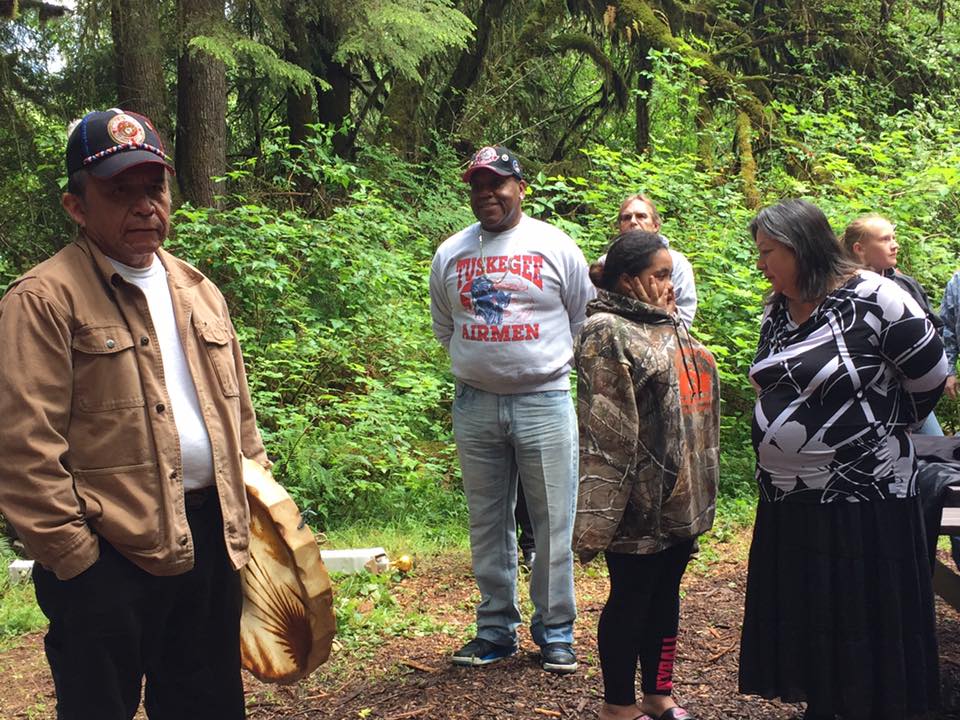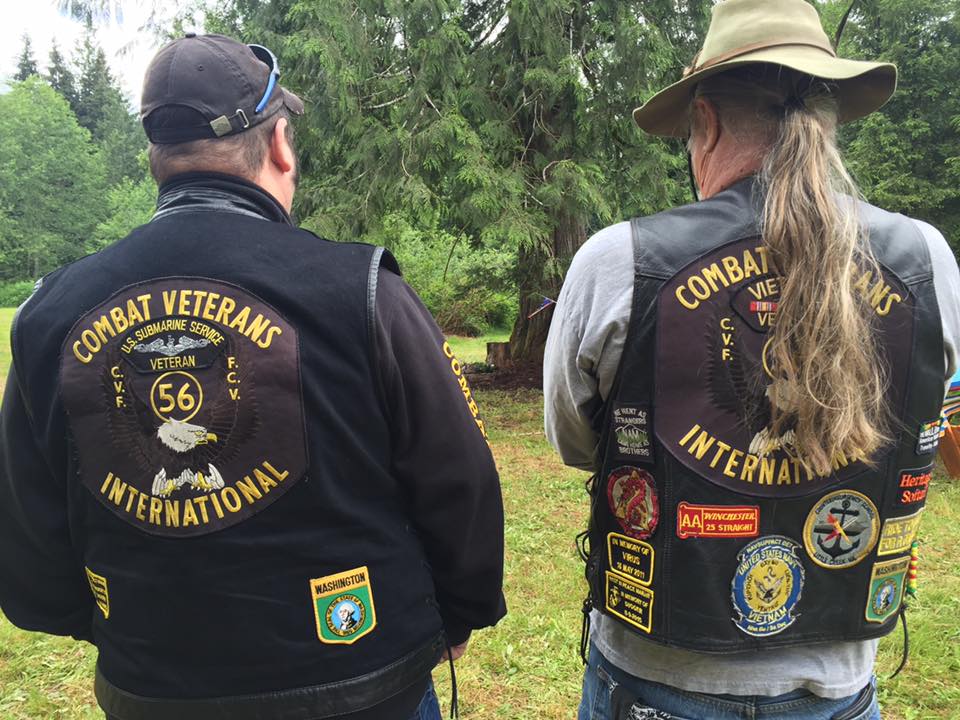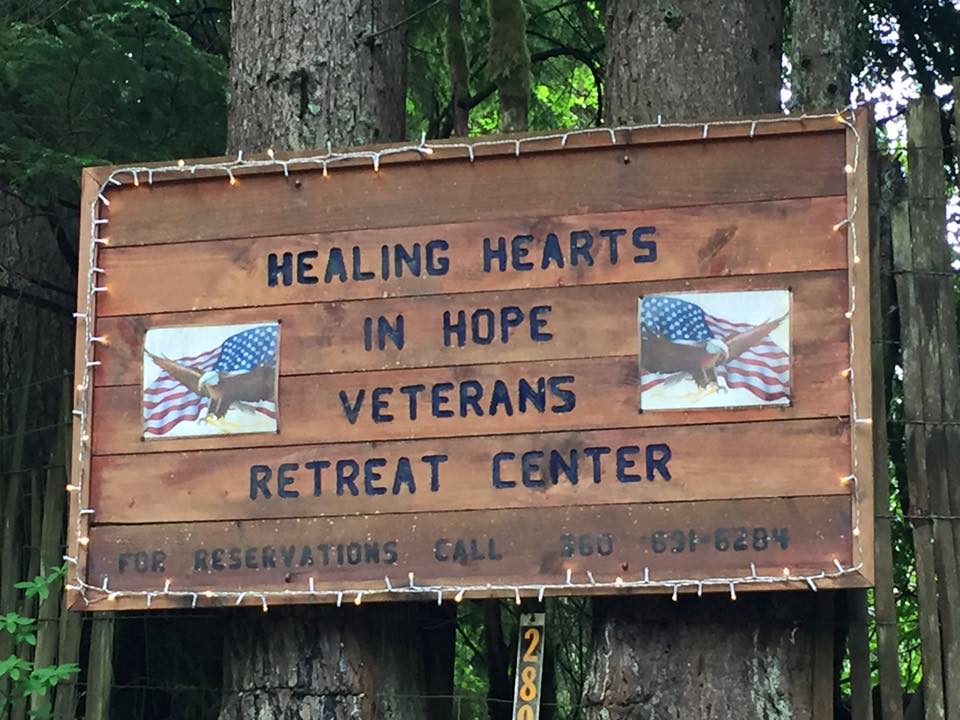Written by Kate Thieda
Click here for original article
Today I am pleased to bring you part 1 of an interview with Bridget C. Cantrell, PhD, a mental health practitioner and leading advocate for military veterans and their families. According to her website, Hearts Toward Home, in 2008, she received the Didi Hirsch Foundation Leadership Award for Erasing the Stigma of Post Traumatic Stress Disorder (PTSD).
She has written several books, including Souls Under Siege: The Effects of Multiple Troop Deployments-and How to Weather the Storm; Once a Warrior: And Wired For Life; and Down Range: To Iraq and Back. She has worked with veterans for 20 years, and shares some of her wisdom and knowledge about how partners of military veterans struggling with PTSD can help.
1) Most people have heard about PTSD being an epidemic among returning soldiers, but few actually know what that means. Can you please give us a definition of PTSD that includes examples of how it might show up in someone who has served in the military?
PTSD is something that happens to an individual when they are exposed to a traumatic event or traumatic events. (You can find the DSM criteria for PTSD here.) The way I see this is I have an obligation to provide as much information as possible, so those with whom I work gain a better understanding of what PTSD means. I go as far to say that this is not a “mental illness”; it is a way of coping with something that has been so horrific that a person has become fragmented in their mind, body and spirit. These symptoms offer them a way of coping in order to just get through this event. I want them to see post-traumatic stress from all perspectives so they can embrace that which they fear and use this as a strength to go forward.
Post-traumatic stress manifests in a variety of ways: behaviors of avoidance, irritability, emotionally shutting down (numbing), sleep disruption, nightmares, intrusive memories, increase in drug and alcohol use, hyperarousal in terms of startle response, etc. There are also physical symptoms of stress: migraines, headaches, gastrointestinal issues, chronic pain, fatigue, etc. There is also interference in cognitive functioning: they have confusion, forgetfulness, poor concentration, etc. In addition, we see a disconnect with relationships: loved ones, themselves, their spiritual relationship, etc. There is an overall sense of feeling alone in this journey, and out of sync with their support systems and with what was previously important to them.
With our troops who are going through various aspects of their deployment cycles, we may see a tendency to be overwhelmed and shutting down from emotions, relationships, as well as anger issues, poor impulse control, road rage, increase in drug and alcohol use. They may just want to be with their fellow troopers, and not too engaging with family members or civilians. We see this particular generation using gaming as a means of isolating and forming artificial relationships that are safe and don’t have demanding requirements of them on any level such as emotionally, or physically. These relationships serve their need for connectivity on many levels, but these unique relationships can certainly be a threat to their primary relationships.
2) The day that a military partner returns home from deployment is supposed to be exciting, but many partners feel nervous about re-establishing their relationship and helping the military partner reintegrate into civilian life. What tips do you have for easing the transition, both in preparing before the soldier returns, and in the first few weeks they are home?
These transitions can clearly be disconcerting and create an under current of additional stress for those who are dealing with these deployments. I suggest, if possible, start discussing these concerns even before they return, although for some couples and families, this may be an impossibility. Just by beginning the dialogue regarding these concerns can ease the uncertainty of the outcome, although there are no guarantees. Each deployment offers a different experience and some may be very challenging, and with that they may bring home a new set of issues that were not previously part of any of their prior homecomings. So it is important to lower the stress level in the house by preparing the children and relatives in a way that creates a sanctuary from which you can spend quality time together if you are a couple just getting to know each other again.
This also goes for the single service members as well in terms of creating your environment so that you feel safe.
It is best when they return that things are as close to the same as they were before they left. What I mean by this is the predictability in their surroundings, be that living arrangements and the support system be as familiar as possible. Even routines that have changed such as a spouse going back to school may create from stress because it is different. Remember to spend time with the children, but do set aside some quality time to reconnect with your mate. Change is part of the military culture, but when our service members return from deployment, it is most beneficial that there is something that is familiar that they can latch on to in order to anchor them in the present. This metaphor may represent a way of quieting themselves, which in the long run will benefit the entire family system.
Please have a good supply of favorite foods in the house. Having a refrigerator filled with alcohol is something to shy away from, as this can certainly have a tendency to complicate a situation quickly. Be prepared that your loved one coming home from the war zone may just need to have down time, and being around family members or having planned activities may not be on the top of their list. If people want to have a gathering, do it as someone else’s home and have a code word that you can use that would signal that it is time to leave.






